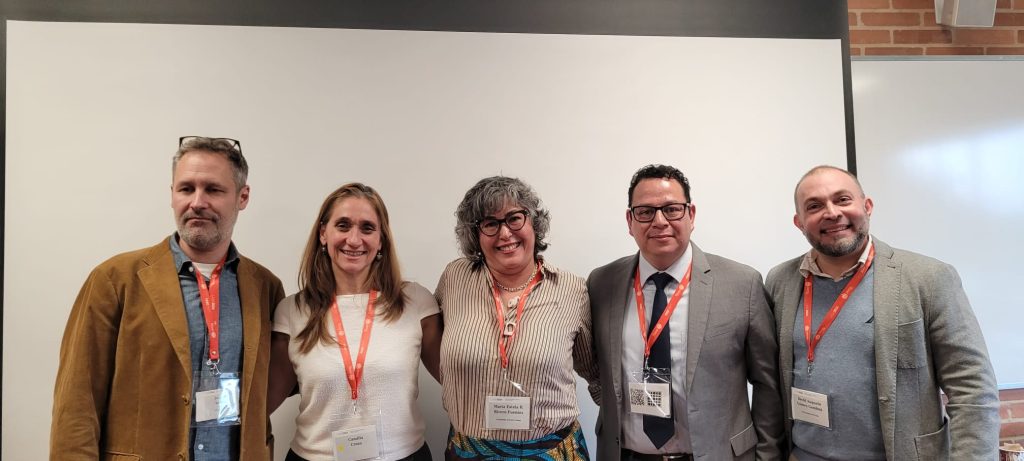The Coalition held a workshop on academic freedom in the Americas during the meeting, that was held in Bogota, Colombia
“Attacks on academic freedom and university autonomy in the Americas: Lessons for resistance, defence and solidarity” was the title of the workshop held by CAFA in May 13, during the Latin American Studies Association (LASA) meeting, in Bogota, Colombia.
The CAFA delegation that chaired this workshop was made up of the Coalition’s Director, Camilla Croso, Jesse Levine (Scholars at Risk), Maria Estela Rivero Fuentes (Central American Research Alliance/University of Notre Dame) and David Augusto Gamboa (Aula Abierta/Universidad de Zulia), moderated by Salvador Herencia Carrasco (HRREC/CAFA). The session sought to identify characteristics and trends in the state of academic freedom in the Americas, placing the struggle for the implementation of this right in a regional and global context, particularly in light of the development of the Principles for the Implementing the Right to Academic Freedom and the Interamerican Principles on Academic Freedom and University Autonomy. The meeting highlighted key strategies for the effective implementation of the right to academic freedom, in particular the fundamental role of monitoring as an exercise of follow-up and action, as well as research, especially when carried out as a collaborative and networked practice.
The theme of this year’s LASA meeting was “Reaction and resistance: Imagining possible futures in the Americas”. It took place from May 12-15.

In addition to the Workshop, CAFA participated in a talk at the National University of Colombia, organized by one of its members in that country, María Luisa Rodríguez Peñaranda. The meeting brought together a group of women who have been tirelessly combatting multiple forms of gender violence in the context of higher education, and different strategies were discussed to ensure the necessary visibility of this problem, which must be exposed, debated and fundamentally overcome.
